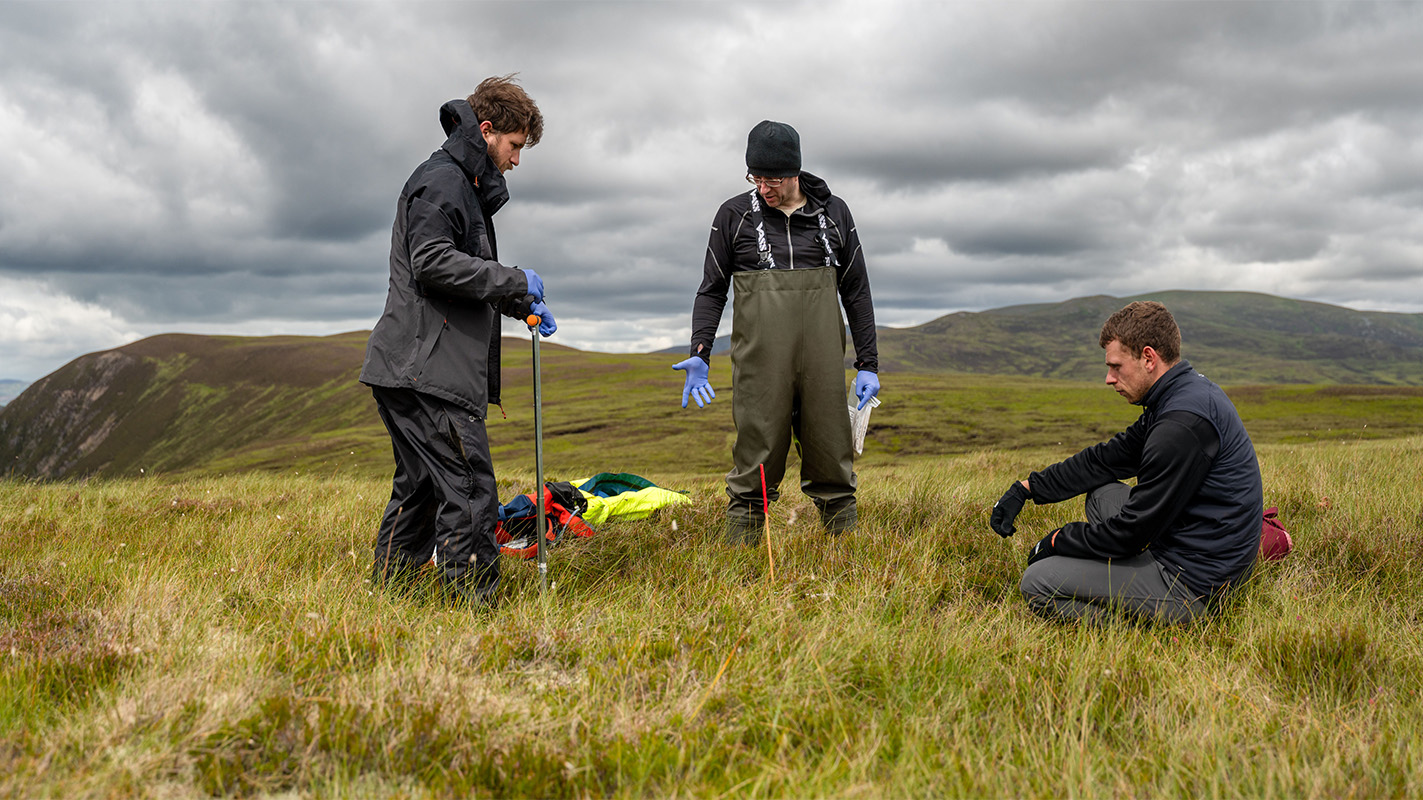Wetlands are focus of new £2.66m centre led by university partnership
A pioneering project to help protect wetlands – one of the world’s most threatened habitats – has secured £2.66 million in funding for a team of scientists from university partners that includes UHI.
Called ECOWILD, the project will train a new generation of environmental scientists through a new Centre for Doctoral Training based across Heriot-Watt University and four partner institutions – the University of Oxford, University of York, University of the Highlands and Islands and the UK Centre for Ecology & Hydrology, a world-class research organisation focusing on land and freshwater ecosystems.
Dr Bernd Haenfling, Director of the Institute for Biodiversity and Freshwater Conservation, is the UHI representative on the management group of ECOWILD and the programme will be open to all PhD supervisors from across the UHI partnership.
He said: "ECOWILD aligns seamlessly with several research priorities at UHI Inverness including our focus on understanding the drivers of biodiversity change and our cross-disciplinary 'Nature and People' theme. The programme will contribute significantly to research in these fields and will strengthen the research environment across UHI."
Wetlands help to combat climate change by absorbing billions of tons of carbon from the atmosphere. But these watery habitats – which include peatlands, marshes, bogs, fens, mangroves and estuaries – are disappearing three times faster than forests. Over a third of the world’s wetlands have been lost since 1970. About 40% of the world’s species also depend on wetlands, which cover about 6% of the earth's land surface.
The Natural Environment Research Council (NERC) – a British research council that supports the environmental sciences – is funding the ECOWILD Centre for Doctoral Training. A further £3million in funding is being invested by ECOWILD’s 30 non-academic project partners. These include energy company SSE, the wetlands and wildlife charity, WWT, the Royal Society for the Protection of Birds (RSPB), British wildlife charity Froglife and pharmaceutical company AstraZeneca.
Students at the ECOWILD Centre for Doctoral Training will learn about wetland environments and, critically, the multiple ‘stressors’– threats – affecting them.
“Pollution, heat waves, seawater inundation, invasive plant and animal species and disease are some of the risks that wetlands face,” explains ECOWILD project lead Dr Frances Orton, an expert in environmental toxins and amphibians at Heriot-Watt’s School of Energy, Geoscience, Infrastructure and Society.
“But the biggest threat to wetlands is drainage. Human uses like agriculture and urban centres can’t be done on wetland – it has to be drained. But if a wetland is drained, it doesn't exist anymore, and that’s pure habitat destruction.”
In a healthy state, wetlands absorb carbon, Dr Orton adds. Wetlands also protect humans and wildlife from extreme weather events like floods and droughts, by storing and releasing water.
But in a poor ecological state, wetlands release methane and carbon dioxide into the atmosphere – greenhouse gases that contribute to global warming.
“Wetlands in general are under-researched on a global scale and we believe this centre will be a first of its kind in helping to close this knowledge gap,” Dr Orton said.
Geoff Hilton, Head of Conservation Evidence at WWT, said: “Wetlands are quite simply the most valuable natural habitats we have on earth. As we move into a new era of ecological restoration, ECOWILD will provide us with the scientists we need to lead the way.”
Through ECOWILD’s partner organisations, students will have access to wetland sites across the UK, such as the Loons and Loch of Banks wetland reserve in Orkney and WWT Steart Marshes in Somerset.
Students will also have access to facilities including state-of-the-art equipment for chemical analysis.
Centres for Doctoral Training are set up specifically to train students studying Doctor of Philosophy (PhD) degrees.
NERC has announced funding for another three Centres for Doctoral Training in flood prevention, freshwater quality and critical minerals, led respectively by the University of Southampton, the University of Bath and the University of Leicester.
Science, Research and Innovation Minister, Andrew Griffith, said: “Backing our brightest students to tackle issues as vital as flooding and protecting our water quality is an investment in protecting the landscape of the UK, while defending our planet and the resources we need to deliver us all healthier and more prosperous lives.
“With more than £10m in funding over the coming years, it will also help to skill-up students in high-value research, which will grow the UK economy and ensure we fulfil the potential of the talent spread throughout our country.”
Professor Peter Liss, Interim Executive Chair of NERC, said: “This investment by NERC will equip the next generation of environmental science researchers with the technical and professional skills to tackle some of the most significant challenges facing the UK and globally.
“The new Centres for Doctoral Training will focus on the key themes of flood management, freshwater quality, sustainable mineral extraction and wetland conservation.”
This investment is first time NERC has funded four new Centres for Doctoral Training in one year. The first student cohorts will start from October.
Students with a first class undergraduate degree, a masters degree or other experience can apply to the ECOWILD Centre for Doctoral Training. For more information, email ECOWILD@hw.ac.uk.
WWT has 10 wetland sites across the UK, including in Tyne and Wear, Lancashire, Peterborough, Carmarthenshire in Wales, London and West Sussex.
Issued by Heriot-Watt University
